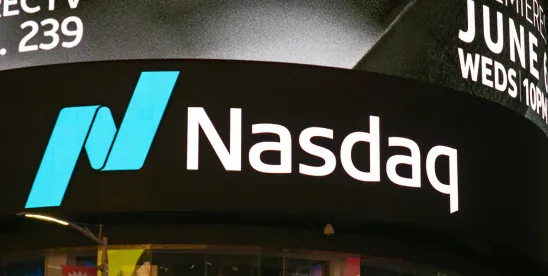On July 25, 2024, the U.S. Securities and Exchange Commission (SEC) notified the U.S. Court of Appeals for the Fifth Circuit that at least part of the basis for the currently pending legal attack on the Nasdaq’s proposed diversity rule is now moot, thus narrowing the scope of the court’s review. The larger questions of whether Nasdaq’s rule violates the U.S. Constitution and whether the SEC exceeded its legal authority in approving the rule that companies on the stock exchange disclose demographic data about their board members and comply with diversity expectations remain pending, although a forthcoming decision appears imminent.
Quick Hits
- In August 2020, Nasdaq issued a proposed rule that requires companies listed on its stock exchange to disclose demographic information about their board members, and for companies with more than five board members, to have two members from underrepresented groups (or explain why they do not).
- After the SEC approved the rule in August 2021, the Alliance for Fair Board Recruitment and the National Center for Public Policy Research filed suit in the Fifth Circuit, claiming that the rule violated the U.S. Constitution and that the rule exceeded the SEC’s authority under federal law.
- On October 18, 2023, a three-judge panel of the Fifth Circuit ruled in favor of the SEC, but on February 19, 2024, the Fifth Circuit agreed to rehear the case en banc.
- Following oral argument on May 14, 2024, the court requested the parties to submit subsequent letters briefing on the question of whether the part of the rule that offered a free service to corporations seeking to identify candidates from members of underrepresented demographic groups for open board seats had expired, and if so, the jurisdictional consequences. In response to this request, on July 25, 2024, the SEC and Nasdaq advised the Fifth Circuit that complimentary service is no longer available, and that part of the legal challenge aimed at this service is now moot.
Nasdaq’s Board Diversity Rule
On August 6, 2021, the SEC approved Nasdaq’s proposed diversity rule for companies listed on its exchange. Companies must: (1) publicly disclose board-level demographic data annually, and (2) have, or explain why they do not have, a certain number of diverse directors on their boards. Companies with more than five board members must have two members who are from an underrepresented group, including one female and one person who self-identifies as Black, Hispanic, Asian, Native American, Alaskan Native, Native Hawaiian, Pacific Islander, biracial, or LGBTQ+. Boards with five or fewer members need only have one member from an underrepresented group.
Nasdaq also provided Nasdaq-listed companies one year of complimentary access to a board recruiting solution to help identify board-ready candidates from underrepresented groups.
On August 10, 2021, the Alliance for Fair Board Recruitment (AFBR) filed suit challenging the rule and was later joined by the National Center for Public Policy Research (NCPPR). The AFBR and NCPPR claimed the rule discriminated on the basis of sex and race in violation of the Fourteenth Amendment of the U.S. Constitution and violated the First Amendment’s protections against coerced speech. They also claimed the rule exceeded the SEC’s authority under the Securities Exchange Act of 1934 (Exchange Act) and the Administrative Procedure Act (APA).
On October 18, 2023, a three-judge panel of the Fifth Circuit ruled in favor of the SEC, stating that the SEC’s approval of the rule complied with the Exchange Act and the APA. The court rejected the constitutional claims because Nasdaq is a private entity, not a government institution or state actor. Nasdaq is a private limited liability company, owned by Nasdaq Inc., a publicly traded corporation.
The AFBR and NCPPR requested the Fifth Circuit to review the case en banc, a request the appellate court granted on February 19, 2024. Oral argument took place on May 14, 2024.
Scope of Judicial Review Now Limited in Part
In a July 25, 2024, letter to the Fifth Circuit, the SEC explained that the deadline for companies to register for the free board recruiting service had expired, and Nasdaq will no longer offer that service to listed companies.
The lawsuit challenging the rule initially claimed Nasdaq’s offering of a board recruiting service increased the likelihood that one of the companies in which the plaintiffs hold shares would nominate a director based on race or gender.
The recruiting service has not been available to new companies since December 1, 2023. Only one company is currently receiving assistance through the recruiting service, and the company’s one-year period of eligibility to use the service will end on September 30, 2024, according to Nasdaq. “[T]o the extent NCPPR alleges a cognizable injury traceable to the provision of board recruiting services, such an injury is not redressable by this Court,” the SEC wrote.
In response, the plaintiffs argued Nasdaq’s board diversity rule must still be vacated in its entirety. “[V]acatur is the appropriate remedy when SEC ‘has exceeded its statutory authority in adopting the … rule,’” the NCPPR wrote.
Next Steps
The appellate court will likely issue a ruling soon in this case. If upheld, the Nasdaq board diversity rule will take full effect in December 2026.
The ruling may influence how publicly held companies design, communicate, and implement their recruitment strategies for board members and describe their board composition. Members of boards of directors of publicly traded companies may wish to evaluate the nature and extent of their current and future DEI and environmental, social, and governance (ESG) initiatives, as corporate DEI-related ESG commitments may expose companies to increased scrutiny. Careful crafting of these initiatives in accordance with the organization’s risk tolerance and business goals may be an important component of the risk mitigation strategy.





 />i
/>i
